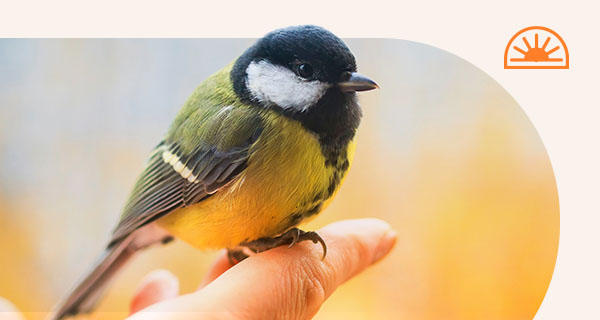How We Can Benefit From Them
The field of animal behavior has, in recent years, expanded and entered the mainstream. Last year’s award-winning HBO docudrama about renowned autistic animal behaviorist Dr. Temple Grandin is a testament to this. This has coincided with the development of animal advocacy organizations which espouse a compassionate attitude towards animals. Skeptics and non-believers have maintained, as their defense, the view that animals just aren’t as evolved emotionally or psychologically as humans.
However, science has stepped in not only to prove that animals do in fact experience emotions, but that they actually feel compassion and empathy—and even clairvoyance, intuition or psychic phenomena. One of the pioneers in animal behavior, Rupert Sheldrake, a British biologist out of Cambridge University in England, was one of the first to garner attention and respect for his studies of animal behavior. Sheldrake not only concluded that animals are possessed of intelligence and emotions, but that they are also capable of making psychic predictions and communicating telepathically.
Perhaps we have all heard about phenomena involving animal responses prior to natural disasters such as hurricanes or earthquakes. For example, prior to China’s largest earthquake (magnitude 8.5) in 1920, wolves were running around in packs, dogs were engaged in bizarre behavior and sparrows were flying around chaotically. There have been numerous such reports documenting unusual animal behavior prior to natural disasters in countries all over the world.
Rupert Sheldrake’s experiments have involved the discussion of such phenomena, and also the study of animal’s behavior as it relates to predicting and anticipating the owner’s arrival, leading him to actually pioneer the new field of animal telepathy. Writes Sheldrake: “My research on telepathy in animals led me to see telepathy as a normal, rather than paranormal phenomenon, an aspect of communication between members of animal social groups.” (“Dogs that Know When Their Owners Are Coming Home: And Other Unexplained Powers of Animals: An Investigation,” by Rupert Sheldrake.)
Today, with the explosion of the Internet, one can find reports of countless psychic animals. For example, Paul, the recently deceased octopus, correctly predicted a host of World Cup winners. There are also the psychic cats of 3rd Street Promenade in Santa Monica: Nostradamus, Wizard and Cassandra. One asks a cat a question and the cat chooses a scroll with a fortune inscribed on it. Numerous message boards feature the pleased proclamations of clients who claim that the cats’ predictions have been amazingly accurate and helpful.
So, then, how does this affect us and our treatment and attitudes towards animals and, besides sharing such fantastic anecdotes at cocktail parties, what can we do with this information?
Dr. Michael W. Fox of the University of Washington is one of the pioneering forces in the field of animal clairvoyance. He has coined the term “empathosphere,” referring to the empathic connection between beings, which, he says, humans have disconnected themselves from, citing animals’ psychic ability as a manifestation of this. Perhaps, therefore, we can learn from our animals and cultivate our lost interconnectedness to other beings.
In his book Cat Body, Cat Mind, Fox gives guidelines for human cat owners or guardians for interpreting their cat’s telepathic behavior. Such interpretations and connectedness to our animals can help us to help our animals when they are attempting to communicate their distress.
Fox believes that animals are worthy of our respect, because they possess the ability to heal and teach us. Learning to understand their psychic communication can help us to utilize the teaching and healing they have to offer us.
While such notions might initially set the alarms of skeptics a-ringing, they can actually be seen now in such mainstream fields as equine therapy and animal assisted therapy where children with autism and those with paralyzing disorders have, in fact, been healed by their interactions with animals.
Even police dogs are said to rely, in part, on intuition. “This is an extremely important trait for a guard dog as well as with police dogs, where intuition is the key to success,” according to the online Boxer Dog Guide.
Marc Bekoff, Professor Emeritus of Ecology and Evolutionary Biology at the University of Colorado, Boulder states that “understanding our connections with animals better and studying these telepathic links will help us reconnect with the animal kingdom.” Through this connection we can once again experience that part of us that has been snuffed out or silence by our contemporary industrialized life. (Bark Magazine No. 10, Winter 2000: Marc Bekoff interviewed by Rupert Sheldrake.)




3 thoughts on “The Psychic Powers of Animals”
You know, I really serious thinking about my pets. Also, this article wants to presents the power of the animal. I can use this information for helping to my friend for his pets.
I have been living with three dogs, all different breeds, for 13 years and I can say without the slightest hesitation they communicate with each other telepathically. I am not claiming they are talking to each other but they do send and receive feelings. It is very obvious when they communicate with each other. Experiencing this has me wondering if this behavior or ability in my dogs is really a primitive ability that predates human verbal communication. I believe that human clarvoyance etc. is likely a leftover from a more primative animal ability that humans generally have lost. The dog whisperer, Ceasar Milan, refers to dogs sensing the owner’s feelings. He does remarkable things with dogs because of his knowledge of this dog sensitivity.
Love this article about pets. It is true, my beloved dogs speak to me everyday. If they like someone they show me simple signs of acceptance such as wagging their tails, kissing, running around the room bringing all of their toys to the visitor. They also show me dislike when they cower or stay back from someone or at their most intense stance, bark to warn me. And, when they are hungry they make sure to find me and make me follow them to the appropriate snack area or meal area. So Cute!